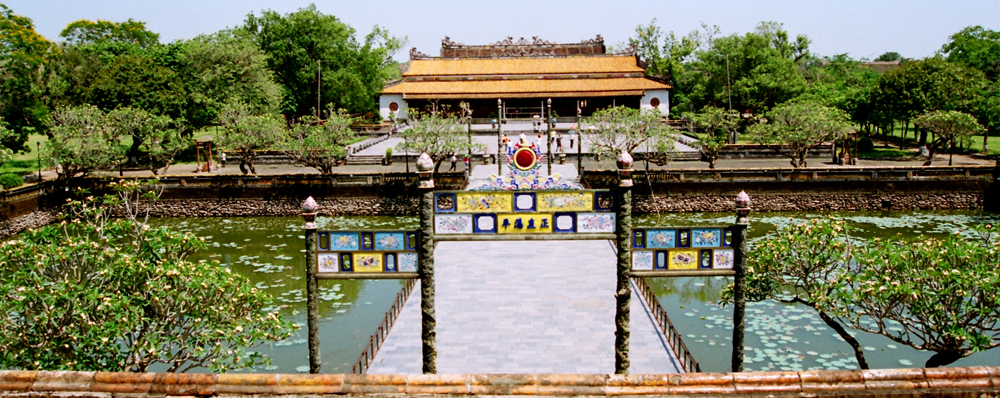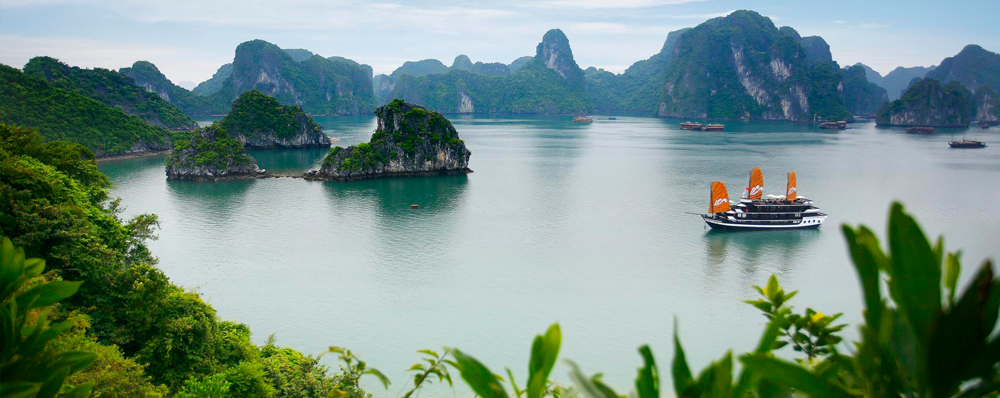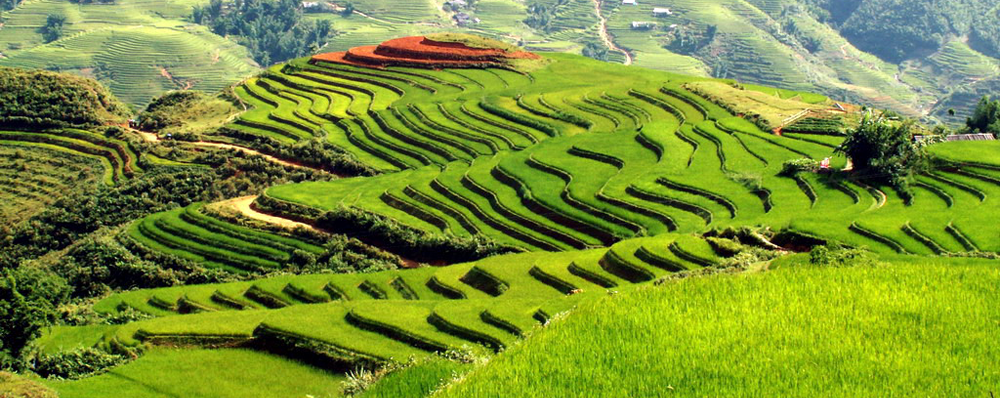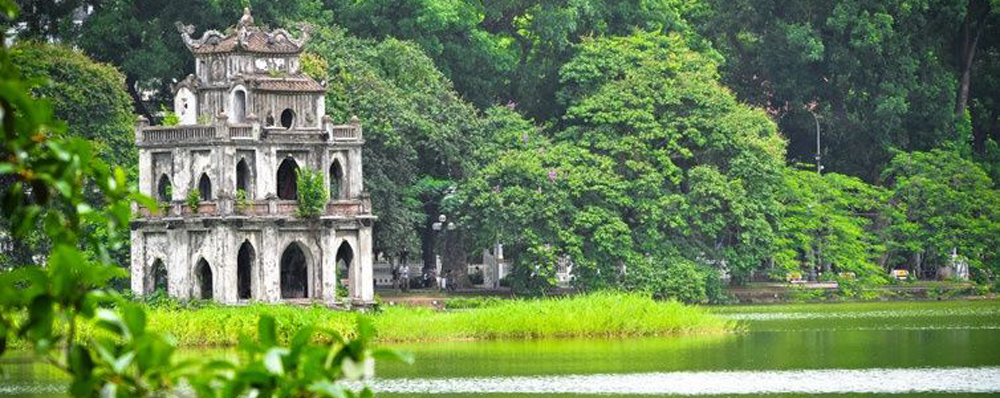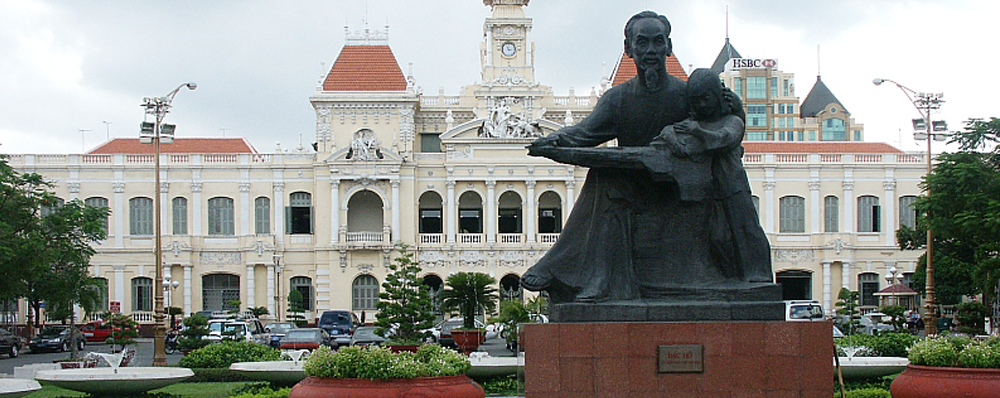The Future of Vietnam Travel Is Anchored By Deep
Vietnam is a name that stirs the senses and emotions. It conjures visions of proud farmers in conical straw hats tending their rice paddies. It conjures smells of lemongrass, ginger and mint, savory spices used in Vietnamese cooking.
It conjures the romance of a bygone colonial era, and the hope of a resilient people who look to a modern future, even as they retain the exotic culture and deep traditions of their ancient past.
As long as I can remember I've had a fascination and an affinity for Vietnam. Growing up, I read everything I could on the country, watched every movie. I took a course in college on the French and American Indochina wars. So when President Clinton lifted America's trade embargo in February of 1994, just as I was planning my graduation adventure, I didn't think twice. In July, 1994, I was among the first Americans to visit Vietnam after the war. Over the past two decades I've watched the country embrace rapid change while still retaining its distinct character, deep-rooted traditions, and the warmth and openness of its people.
I vividly remember the day I arrived in Saigon, the overwhelming wave of excitement. The city looked exactly as I'd pictured it, like it hadn't changed at all since America's departure in 1975. The Vietnamese (particularly the Southerners) are very outgoing, and my red hair was pretty eye-catching, so people immediately approached me on the street. Most people assumed I was French, but when a man asked me in English where I was from I was startled and mumbled "...merica", a bit nervous about his reaction. Unbelievably, I got a big, broad smile, a response which was to be repeated for the rest of my time in Vietnam. Often people would say something like "I fought with Captain Dan from San Diego. You know Captain Dan?" Or, "Bill Clinton, very good." I can't profess to understand how or why the Vietnamese people were able to move on, despite having lost between one and three million people in the war, but in all my time in Vietnam, I have never, not once after that first day, been uncomfortable about being an American. I have always been treated graciously, kindly, and warmly. I was scheduled to stay for two weeks, but the following day I extended my stay to a month. It was not always an easy trip, but it was incredible, and life-changing in so many ways. I was about to start my first job in the travel industry, and I vowed I would one day come back to Vietnam to work.
Fast forward twenty years and now I run Access Trips, a boutique adventure travel company which has just launched a culinary tour in Vietnam. We go deep into the culture as we cook (and eat) our way from Saigon to Hanoi, stopping en route to visit the UNESCO World Heritage site of Hoi An and the former imperial capital of Hue. Our guests connect with villagers, urban hipsters, street food and market vendors, traditional and modern chefs, artists, and descendants of the royal family, allowing them to experience the evolution of the complex and rich Vietnamese culture.
The first time I was there, Vietnam was very much a communist country in name and in practice, and the service levels, or lack thereof, reflected it. I clearly remember thinking that this country had so much to offer visitors, but they needed to get their act together and understand what Westerners expected service-wise, or people would not come. Well, they did just that. Tourism to Vietnam has grown almost six-fold over the past twenty years, and the service we experience now in hotels, in restaurants, and in stores, is excellent. Unlike other developing countries, you are not bombarded by hawkers on the street -- approached, yes, but respectfully. In taxis, if you tell them you want to use the meter, they turn on the meter, no hassle. I'm so inspired by both the individuals I've met in Vietnam, and by the resilience and spirit of the society as a whole. The country is moving forward, but the charm remains: in the beautiful old buildings; the hanging silk lanterns; the women who still wear traditional cone hats, not because they're iconic, but because they're functional; and in the kindness and warmth of the locals. It is truly amazing how Vietnam's tourism has evolved in the last twenty years, without losing its soul or its character.
Source: huffingtonpost.com
